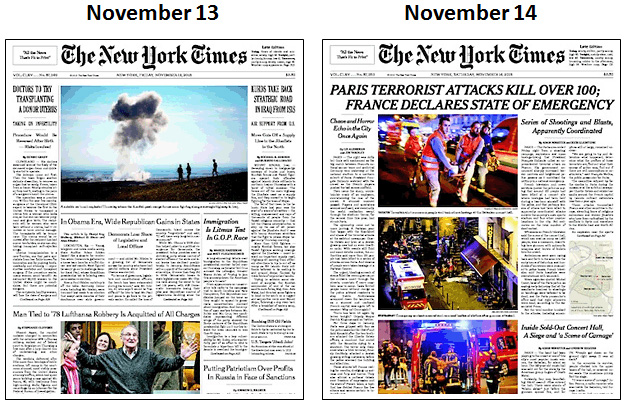After the Paris attacks, a popular tweet made the rounds asking why the media was covering it so heavily when they’d ignored a pair of ISIS suicide bombings in Beirut just the day before. Over at Vox, Max Fisher says this is just plain wrong:
The New York Times covered it. The Washington Post, in addition to running an Associated Press story on it, sent reporter Hugh Naylor to cover the blasts and then write a lengthy piece on their aftermath. The Economist had a thoughtful piece reflecting on the attack’s significance. CNN, which rightly or wrongly has a reputation for least-common-denominator news judgment, aired one segment after another on the Beirut bombings. Even the Daily Mail, a British tabloid most known for its gossipy royals coverage, was on the story. And on and on.
Yet these are stories that, like so many stories of previous bombings and mass acts of violence outside of the West, readers have largely ignored.
It is difficult watching this, as a journalist, not to see the irony in people scolding the media for not covering Beirut by sharing a tweet with so many factual inaccuracies.
I get Fisher’s point, but come on. There’s coverage and then there’s coverage. On November 14, the New York Times dedicated a huge banner headline and nearly its entire front page to the Paris attacks. On November 13—well, don’t bother looking for their Beirut story. Fisher is right that they had one, but it ran on page A6. And Vox itself? Beirut was relegated to one mention in its “Sentences” roundup on Thursday. By my count, Paris has so far gotten 26 separate posts.
It’s true that readers tend to tune out reports of violence in the Middle East and other non-rich countries, but so does the media. Justifiable or not, there’s plenty of blame to go around here.
















